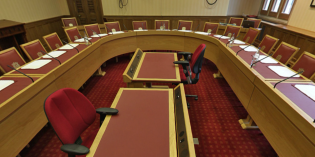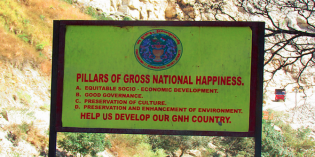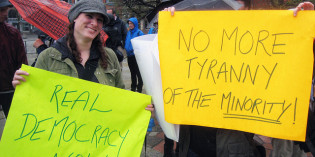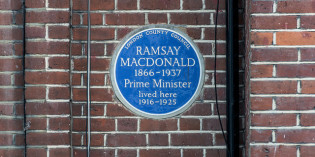
The demise of the Parliament’s Political and Constitutional Reform Comittee: executive power is again predominant
Just how strong is the Conservatives mandate? With only 24.7% of eligible voters opting to support them, perhaps not as strong as their majority might suggest. One of their first moves has been to abolish the House of Commons Political and Constitutional Reform Committee, a key organ of democracy in the struggle to improve British […]

Book Review: Measuring Happiness: the Economics of Wellbeing
This book examines the evolution of happiness research, considering the famous “Easterlin Paradox,” which found that people’s average life satisfaction didn’t seem to depend on their income. But they question whether happiness research can measure what needs to be measured. Laura Kudrna argues this book is well worth a read for its excellent coverage of much […]

The UK is at a constitutional crossroads and major change is needed if it is to work effectively
The The Bingham Centre for the Rule of Law undertook a major Review of the implications of devolution as it is developing for the UK as a whole. Here, Alan Trench summarises the main findings of the report, and highlights its specific proposals for a Charter of the Union, a reformed system of funding, and […]

The myth of ‘self-government’ is threatening both the UK’s place in the EU and Scotland’s place in the Union
The UK government is expected to publish a draft bill on 28 May outlining a framework for the country’s referendum on EU membership. Andrew Glencross writes that UK politics is now increasingly defined by two different kinds of ‘exceptionalism’: a push within the UK for self-government outside of the EU, and Scottish demands for self-government within […]

The take-up of mechanisms designed to temper proportional representation shows that countries don’t choose their electoral systems and rules in a vacuum
Some countries attempt to ‘temper’ the political party system unpredictability by introducing measures to halt fragmentation, such as representation thresholds. Here, Damien Bol, Jean-Benoit Pilet, and Pedro Riera argue that national legislators are more likely to adopt one of these electoral mechanisms when a large number of other countries have made similar choices in recent years. […]

Ireland’s referendum on same sex marriage could be a watershed moment for equality
Ireland will hold a referendum on 22 May on a proposed amendment to the Constitution of Ireland which would permit same sex marriage. Éidín O’Shea writes on the referendum campaign, which has seen all major parties in the country support a Yes vote. She notes that while opinion polling shows strong backing for the proposal, […]

Can Labour recover to win in 2020? History says one thing, and the polls another
The 2015 General Election saw the Conservatives win a majority, seemingly against all odds, with Labour expected to perform much more strongly. Alun Wyburn-Powell looks at the historical precedent for Labour to recover and take the next election in 2020, arguing that while the polling suggests an insurmountable challenge, history suggests that it is possible. Before […]

The EU’s plan to sink people smugglers’ ships doubles down on a failed agenda
There has been a great deal of controversy of late regarding the EU’s action – or lack thereof – on the issue of migrants boats coming from northern Africa through the Mediterranean. Rosa Freedman argues that their latest proposal to enable military action against the boats is unjustifiable and won’t solve a problem with far […]

Can ‘gender equality’ exclude feminist politics? The case of the Radical Independence Campaign
The Scottish independence referendum saw the voters opt to remain within the United Kingdom, al biet by a relatively narrow margin. One of the voices arguing for a ‘Yes’ vote was the Radical Independence Campaign (RIC), who took an overtly left-wing, class-based position, in contrast to the traditional SNP position. Jenny Morrison looks at the way […]

Why the UK’s pre-election polls got it so wrong: is it time to take probability sampling seriously?
One of the key stories of the UK’s general election was the extent to which pre-election polling understated the true level of Conservative support in the electorate. Oliver Heath writes that while many of the lessons have been learned from the last major polling debacle in the UK in 1992, it may be time to take […]




 Democratic Audit's core funding is provided by the Joseph Rowntree Charitable Trust. Additional funding is provided by the London School of Economics.
Democratic Audit's core funding is provided by the Joseph Rowntree Charitable Trust. Additional funding is provided by the London School of Economics.